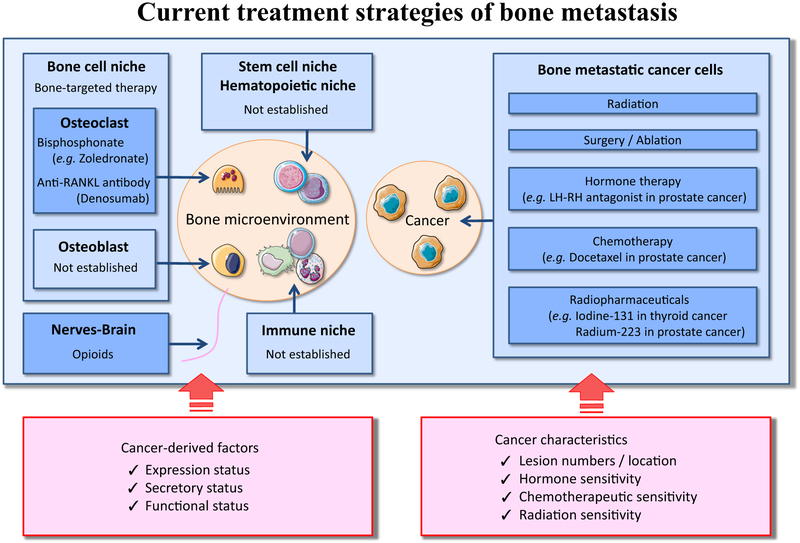Fig. 5.
Current therapeutic concepts for bone metastasis. In bone marrow, metastatic tumor cells proliferate and disturb the normal homeostasis and cross talk among the niches of bone cells, immune cells, stem cells, and hematopoietic cells. These interactions lead to abnormal bone remodeling and enhance tumor progression. Hence, current therapeutic concepts to treat patients with bone metastasis are classified into two categories, (1) treatments against cancer cells and (2) treatments targeting bone tumor microenvironments. As for treatment against cancer cells, the therapeutic modalities include radiation, surgery/ablation, chemotherapy, hormone therapy, and radiopharmaceuticals. In the clinical setting, the treatment options are selected based on cancer characteristics, e.g., detected number and location of bone metastatic lesions, hormone sensitivity, chemotherapeutic sensitivity, and radiation sensitivity. With respect to treatment targeting bone tumor microenvironments, the therapeutic modalities include bisphosphonates and anti-RANKL therapy for the purpose of suppression of activated osteoclasts. Although bone tumor microenvironment contains various cells, specific therapeutic approaches are clinically not established, except for osteoclasts. In the future, personalized approaches may be necessary based on different statuses of tumor-derived factors affecting the bone tumor microenvironments

